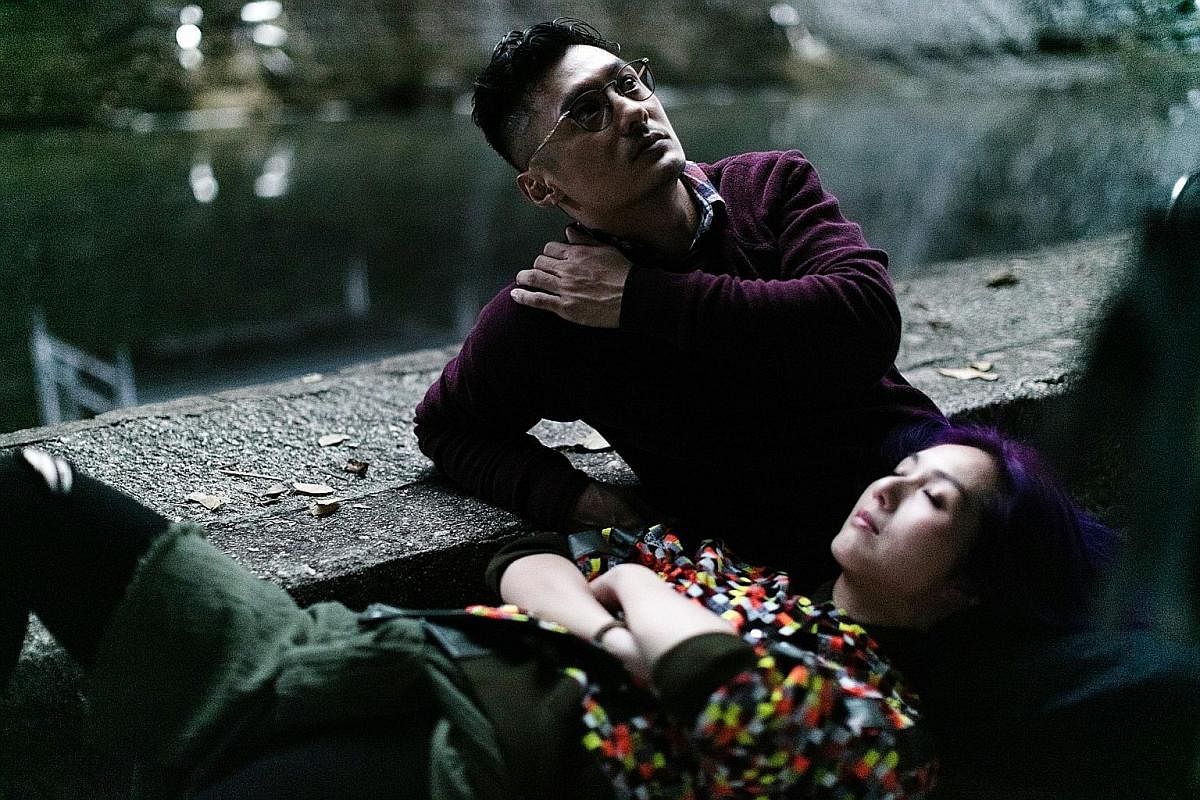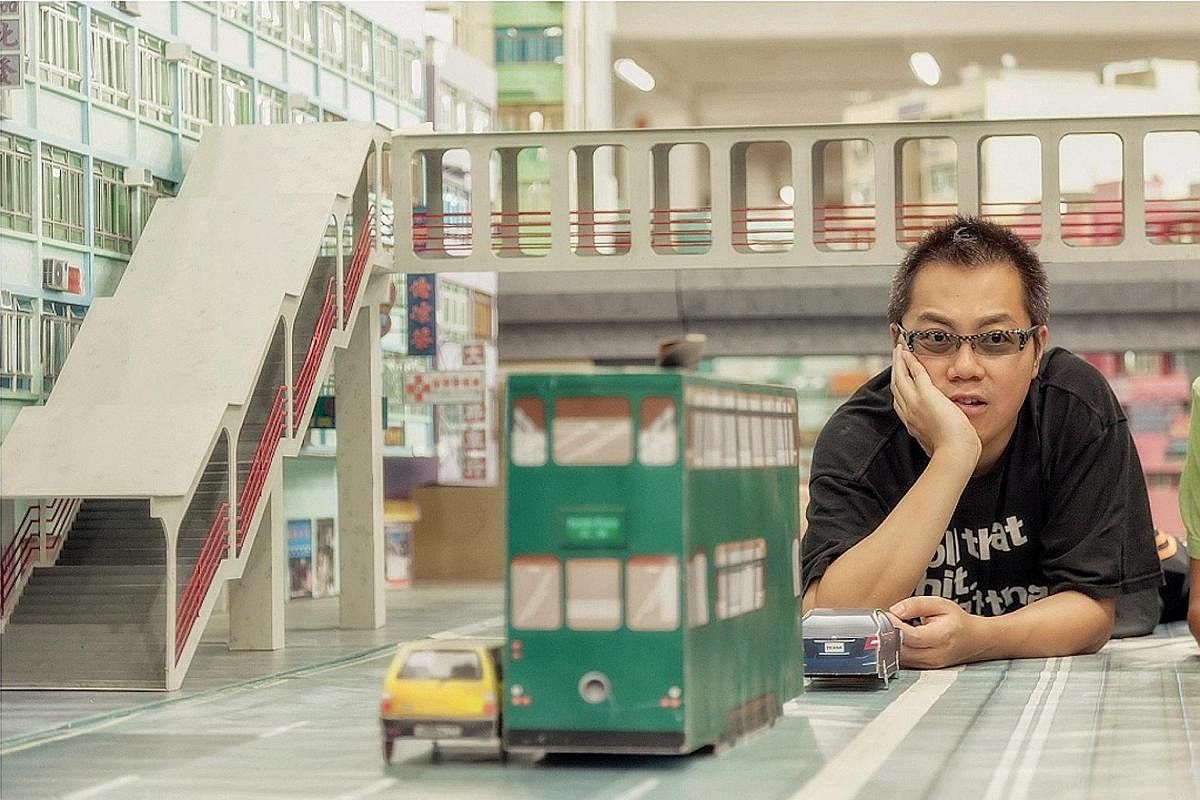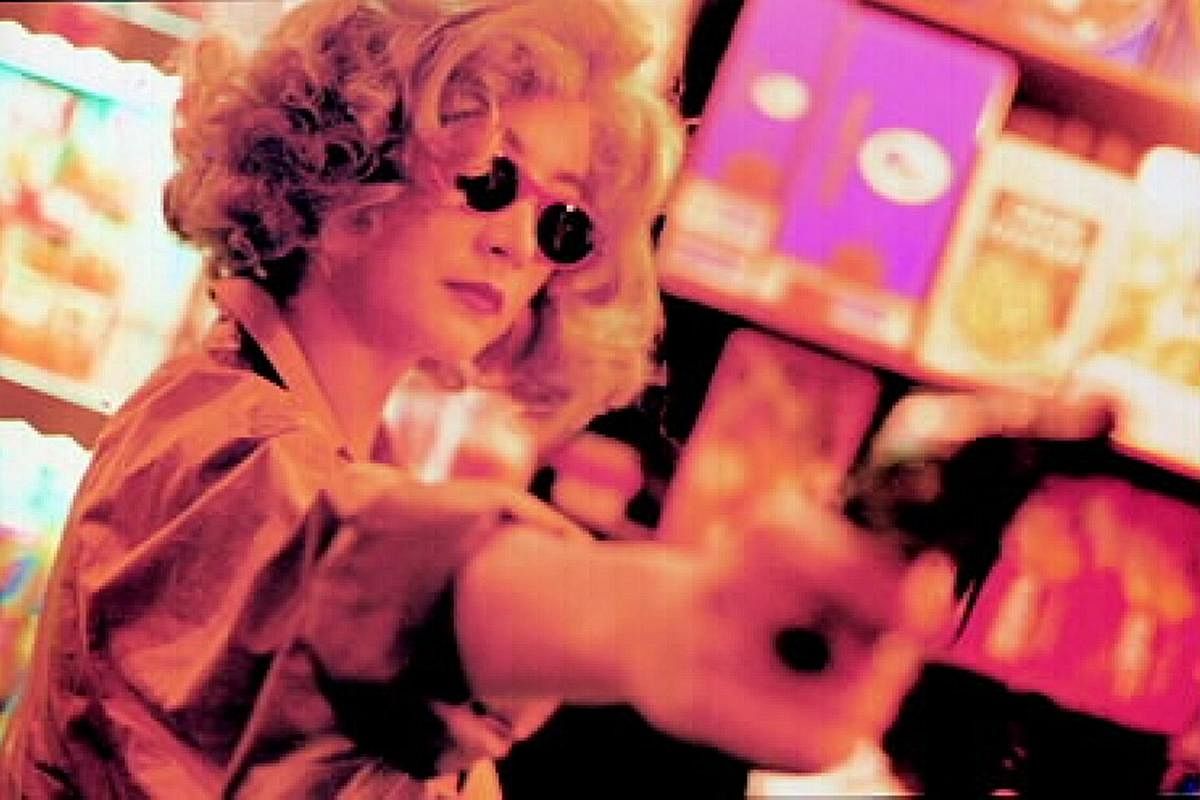Before Sunrise, Hong Kong-style
Writer-director Pang Ho Cheung says he was under great pressure to make the third film about an urbane Hong Kong couple a good one






One of Hong Kong's most beloved and acclaimed film franchises in recent times is neither a thriller about triads, a gongfu drama nor a computer-generated fantasy extravaganza.
It is a romantic comedy that revolves around a couple who talk a lot, perhaps a kindred spirit to Richard Linklater's feted trilogy that began in 1995 with Before Sunrise.
Viewers first met Hong Kong urbanites Jimmy and Cherie in 2010's Love In A Puff. He was an advertising executive and she was a cosmetics sales girl; he was a playful man-child and she was older and more mature.
The ups and downs of their relationship were further chronicled in Love In The Buff (2012) and continues in Love Off The Cuff, which opens here tomorrow. All three parts have been directed and co-written by Pang Ho Cheung, 43, with Shawn Yue and Miriam Yeung as the onscreen couple.
While Pang has watched Linklater's dialogue-dense dramas starring Ethan Hawke and Julie Delpy, he did not want to use a similarly themed series as inspiration.
Instead, he looked to Michael Apted's Up series of documentaries in which he chronicled the lives of a group of British children on video every seven years. He says: "It feels like I'm documenting the changes in a couple's relationship rather than making a love story."
The films have won awards as well as a core of fervent fans and yet it is an unlikely series for more than one reason.
Other Hong Kong film series have revolved around crime, martial arts and fantasy, including Infernal Affairs (2002-2003), Once Upon A Time In China (1991-1997) and A Chinese Odyssey (1995 and 2016).
Pang had previously told The Straits Times he had made the second instalment because he was moved by the missives fans sent to armchannel@ymail.com, the e-mail account for Cherie - messages that would never get a response because there was no such person in real life.
There was no planned sequel, much less a planned series.
Speaking over the telephone from Hong Kong in a mix of Mandarin and Cantonese, he says: "After the first and second instalments, I became friends with the actors. Whenever we met, they always seemed to carry that shadow of Jimmy and Cherie with them.
"To me, the characters do not go away. It's just that audiences don't see them. I thought it was a pity that only I got to see them, so I decided to bring them back in a movie."
Of course, there has also been a constant clamour from fans for more. "Every time I appear at some public event, they would ask me about No. 3, so I've always had that on my mind."
While there is a breezy vibe to the series with its sharp and funny dialogue and naturalistic acting, making Love Off The Cuff was not exactly a walk in the park.
He admits: "The pressure was really great. When Part 2 was done, many people told me they liked it better than the first one. But would I be able to top the second one and win over the fans of the movies?"
That was exactly what Buff did at the box office - it grossed HK$28 million (S$5 million), more than four times of Love In A Puff's take of HK$6.4 million.
Puff won Best Screenplay at the Hong Kong Film Awards and was named a Film of Merit at the Hong Kong Film Critics Society Awards. Yeung was named Best Actress at the Hong Kong Film Awards for Buff.
Pang's body of work includes feted titles such as comedy Men Suddenly In Black (2003, about men behaving badly), the outrageous Vulgaria (2012, about the making of a porn flick) and the contemplative Aberdeen (2014, an homage to the residents of the district in Hong Kong).
But his accidental series of an urbane Hong Kong couple could be his most lasting celluloid legacy.
To some extent, the Jimmy and Cherie films have been inspired by his own life.
Pang is married to his producer Subi Liang and published two essay collections in 2002, titled Before And After Marriage 3 Degrees Of Danger Season 1 and Season 2.
While he says that about half the stories in the movies come from them, he is also quick to add: "I've never had a fling with an air hostess, though," in reference to Jimmy's love interest in Love In The Buff.
Asked how Liang feels about their lives making their way into films and he says that, as a producer, she is more concerned with the technical aspects of his movies ("Do we need to trim this for length?") rather than the source of the plots.
But even with real life as a template, the challenge of crafting a good script remains. "It gets harder because you have to come up with something new. But once you've nailed the script, things get much easier. This is because the actors don't need to prepare, they've been preparing for eight years.
"They are so familiar with the characters that even their improvised dialogue sounds like Jimmy and Cherie."
Notwithstanding gender, does Pang see more of himself in oblivious man-child Jimmy or in mature, insecure Cherie? He acknowledges: "Most people think I'm like Jimmy, but I put part of my personality into Cherie as well."
Beyond that, the films are also a record of changes in Hong Kong society, from the ban on smoking in all indoor areas in Puff to the territory's denizens travelling to mainland China for work in Buff. In this regard, Cuff is probably the least topical, though it still captures the inexorable march of time.
Pang says: "Firstly, ymail no longer exists. Also, in Part 1, they were using Nokia phones and 'n 55!w !' could be read upside-down as "I miss u" and then they later moved on to iPhones, where that would not have worked. From episode to episode, you really feel the passing of the years."
Now that Part 3 is in the bag, inevitably, the possibility of a fourth movie presents itself. He muses: "There are no plans at the moment and I'm not in any rush either. And it need not be a continuation. It could be a movie about them 20 years earlier, before they even met."
•Love Off The Cuff opens in cinemas tomorrow.
Five other quintessentially Hong Kong films
1 CHUNGKING EXPRESS (1994)
The scene of singer-actress Faye Wong riding on the Mid-levels escalator and peering into Tony Leung Chiu Wai's apartment is quintessential Hong Kong cinema.
As always, auteur Wong Kar Wai assembles a cast of the most luminous faces in the territory and the film also stars Brigitte Lin as a drug smuggler and Takeshi Kaneshiro as a cop.
The beautifully poetic movie thronged with longing and loss and also thrust the seedy Chungking Mansions into the spotlight. It was named Best Picture at the Hong Kong Film Awards and is much beloved by critics and cineastes.
2 GOLDEN CHICKEN (2002)
Brash, crass and with a heart of gold is how one might describe Kam, an irrepressible prostitute who has seen it all.
The same could be said of Hong Kong. Her travails over the years are a reflection of good times and bad in the territory.
Actress Sandra Ng won the Golden Horse Award for Best Actress for her very funny and surprisingly moving performance as Kam.
Golden Chicken 2 (2003) and Golden Chickensss (2014) are the other titles in this brood of films.
3 SPARROW (2008)
Director Johnnie To is best known for his testosterone-fuelled crime action flicks, but it is the buoyant Sparrow that takes flight as a love letter to Hong Kong.
Simon Yam and Kelly Lin star in this caper with its jazzy score, cinematic tributes and a charming backdrop of the city's hilly, cobbled streets. The film won for Best Cinematography at the Golden Horse Awards.
4 DREAM HOME (2010)
The nightmare of rocketing property prices takes a dark and murderous turn in Pang Ho Cheung's slasher satire.
Josie Ho plays a woman who snaps after her dream of buying a beautiful apartment is crushed.
Not only does the movie cover a topic dear to every Hong Konger's heart, but its anything goes, gonzo spirit is also very much unique to the territory. In one shocking scene, a young man gets castrated mid-way through sex.
5 TEN YEARS (2015)
This is Hong Kong as you have never seen it before - a dystopian projection 10 years into the future which taps into a very real sense of unease about its fate.
The Hong Kong Film Award winner for Best Film is uneven and raw at times, but there is no doubting the passion of the film-makers in this collection of works which are, by turns, darkly humorous and fiercely political.
Join ST's Telegram channel and get the latest breaking news delivered to you.
A version of this article appeared in the print edition of The Straits Times on May 03, 2017, with the headline Before Sunrise, Hong Kong-style. Subscribe

